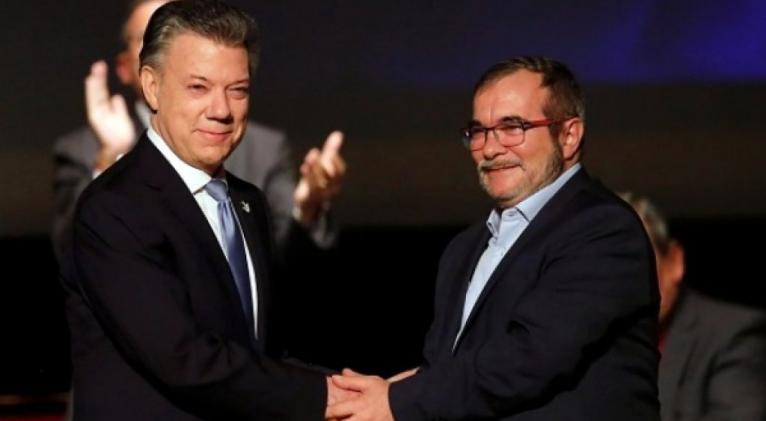Colombia Congress Ratifies FARC Peace Deal, Triggers Next Steps
especiales

The Colombian House of Representatives unanimously ratified the historic peace deal between the government and the FARC rebel group on Wednesday after the Senate did the same Tuesday, triggering the implementation of the agreement that brings an end to over half a century of civil war in the South American country.
RELATED: Key to Peace Now Lies in Hands of Colombia's Polarized Congress
The agreement was approved in the 166-seat lower house of Congress by 130 votes in favor and zero against. Votes were cast after a lengthy day-long session that saw both supporters and detractors of the breakthrough peace deal, updated after a defeat at the polls in an Oct. 2 plebiscite, make their case for a "Yes" or "No" vote. The decision came a day after the Senate also passed the deal 75-0.
Both the Senate and the lower house approved the plan despite the vocal protests from Senator and former far-right President Alvaro Uribe, who led the "No" forces during the plebiscite, and who had called his supporters to take to the streets in opposition to the latest deal, despite the fact that negotiators made changes changes to 56 of the 57 points the "No" side contested.
While Uribe and his fellow Center Democratic Party senators did not boycott the debate in either House as they had earlier threatened, they boycotted the vote itself in both cases, walking out just minutes before voting took place. During the sessions they also displayed signs reading "No Al Conejo," meaning "No to the Rabbit." In Colombia, the term "rabbit-making" means cheating and is often used to refer to people who leave a restaurant without paying. Uribe has staunchly maintained that the peace deal is too lenient on the FARC.
Both the Senate and lower house votes easily passed the vote thresholds needed to approve the deal, and the margin bestows greater legitimacy on the deal, analysts have argued. The ratification allows the peace deal to enter in force and triggers a 180-period — monitored by the United Nations — for FARC rebels to move to transition camps and begin the process of laying down their arms and preparing to reintegrate into Colombian society.
RELATED: Colombian Women Fight Gender Violence, Celebrate Peace With Art
The approval comes less than a week after Colombian President Juan Manuel Santos and FARC leader Rodrigo Londoño, also known as Timoleon Jimenez or Timochenko, formally signed the deal in Bogota last Thursday.
A previous peace agreement was narrowly defeated by less than half a percentage point in a national plebiscite on Oct. 2. Within weeks of the plebiscite, the government of Colombia and FARC leaders revised the original plan, making 50 changes while keeping foundational cornerstones of the deal intact.
During the debate in the Senate, High Commissioner for Peace Sergio Jaramillo likened the peace deal to a miracle. “To achieve an agreement with the FARC after 50 years of war in an agreement which really gets to the roots of the violence, the conditions that have provoked the violence, this guarantees an end to that violence, and it’s nothing less than a miracle,” said Jaramillo during the opening of Tuesday’s debate.
The peace deal, negotiated over the past four years in Havana, Cuba, brings to an end the longest and bloodiest civil war in Latin America, which has left some 7 million people displaced, more than 260,000 dead, at least 79,000 disappeared and 30,000 kidnapped since 1958.
On Dec.10, Santos will accept the Nobel Peace Prize for his efforts. FARC leader Timochenko was notably left out of any formal recognition for his role in the bilateral agreement.













Add new comment